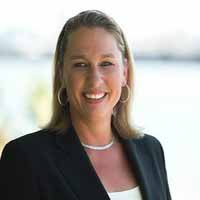 By Lori Heino-Royer
By Lori Heino-Royer
Co-Chief Executive Officer
CEOX
In 2020, we have experienced rapid change in all aspects of our lives – business, education, day-to-day, and everywhere in between. From the pandemic to the rise of the equality movement, to natural disasters, we are navigating some form of disruption in our ecosystems.
Stress, anxiety, and frustration have become more prevalent as we learn to adjust to this new environment. It may seem like there is little in our realm of control right now, but we can direct how we think about what’s next and use tools that aid us to effectively cope and identify new opportunities.
Defining Strategic Foresight
Strategic Foresight is a tool used to create functional views of alternative futures and possibilities. Start by identifying emerging trends and issues. Then, use these insights to map out possible futures or scenarios. These well-informed possible maps of the future allow you to test your current strategies, develop new ones, and embrace the transformative change. The power of foresight lies not in its tools and methods, but in its ability to alter perspectives.
As an example, human-centric approaches and technological platforms are two areas that are converging in novel ways. As humans, we have become comfortable using technology in business to calculate and communicate with each other in different manners. For instance, mainframe computers first helped us perform innovative calculations. Then, we moved to utilizing personal computers cemented to everyone’s desk, and now we are all working on small laptops or tablet devices that better serve our “mobile” needs. These evolutions allow us to work and connect in new ways.
As we continue to iterate, we accept a greater level of automation that free us from the tasks we hate completing.
The work environment and the human-technology interface are also in flux. Prior to COVID-19, organizations were able to create workspaces that were intended to help you achieve success. Now, many employees are working from home with the inability to separate work life from personal life. Some have a quite space to work with, while others are dealing with small children who need oversight as they also assume their “teacher” hat.
Each person’s lived experience is different, and now the work experience needs to adjust as well. People were putting in a full day’s work by being present in the office during accepted office hours. Now, many of those workers are struggling to give those exact same hours (8-5) to their company as they deal with new challenges. Several organizations have already stated that their employees never need to go back to the office, while others have stated expected return dates for employees.
Seizing the opportunity
The opportunity is in evaluating the potential impacts to shifts in employee job duties/goals. Employers can use strategic foresight to create scenarios and evaluate changes in expectations and their potential outcomes. What is the impact of shifting to performance based targets rather than focusing on time and attendance? This is ripe ground for new product/process innovation as new tools are needed to regain the productivity, we once took for granted by being co-located. Employers should focus on the shifts that are occurring in workplaces, technology and work practices.
Using a Strategic Foresight framework, we can respond to these changes and develop alternative scenarios that guide our decision-making in the present, regardless of the professional or personal context.
Lori Heino-Royer is currently Co-Chief Executive Officer of CEOX, an organization that connects highly qualified female CEO-ready candidates to CEO roles. As an operations and strategy executive with over fifteen years of leadership experience as a key innovator and design thinker for Daimler Trucks, North America, she excels at driving continuous process improvements, business modeling, and problem-solving to realize organizational goals and transformative results.
In addition to being an expert in strategic planning for enterprise-wide projects, Lori is skilled and passionate about telling stories that rally others to deliver their best results. She provides shelter for the ideas of others, helping them to structure their ideas into real products. Lori received her M.B.A. from Portland State University and also has professional credentials as a Certified Public Accountant, a Project Management Professional, and a Certified Foresight Practitioner.


Recent Comments